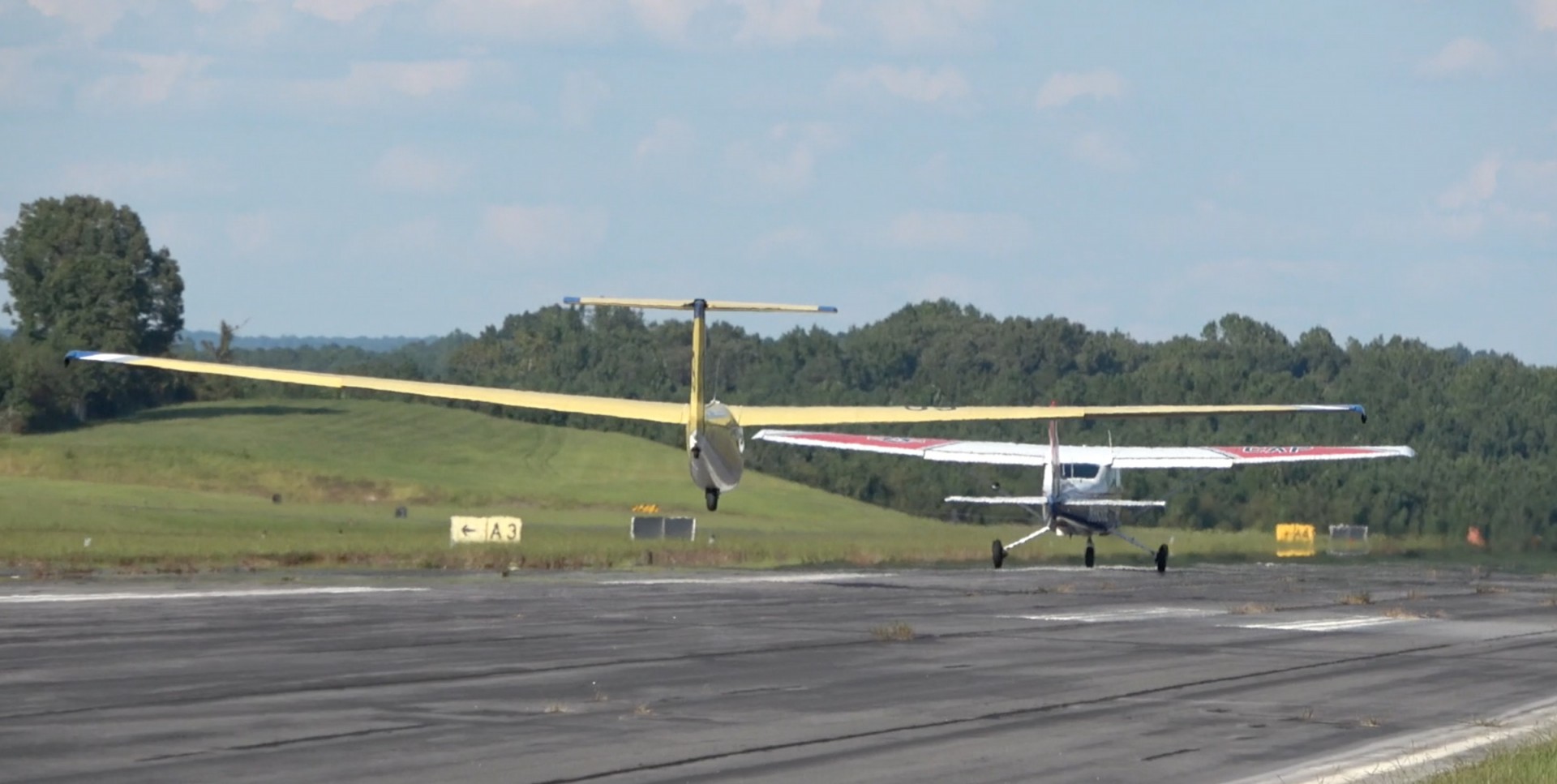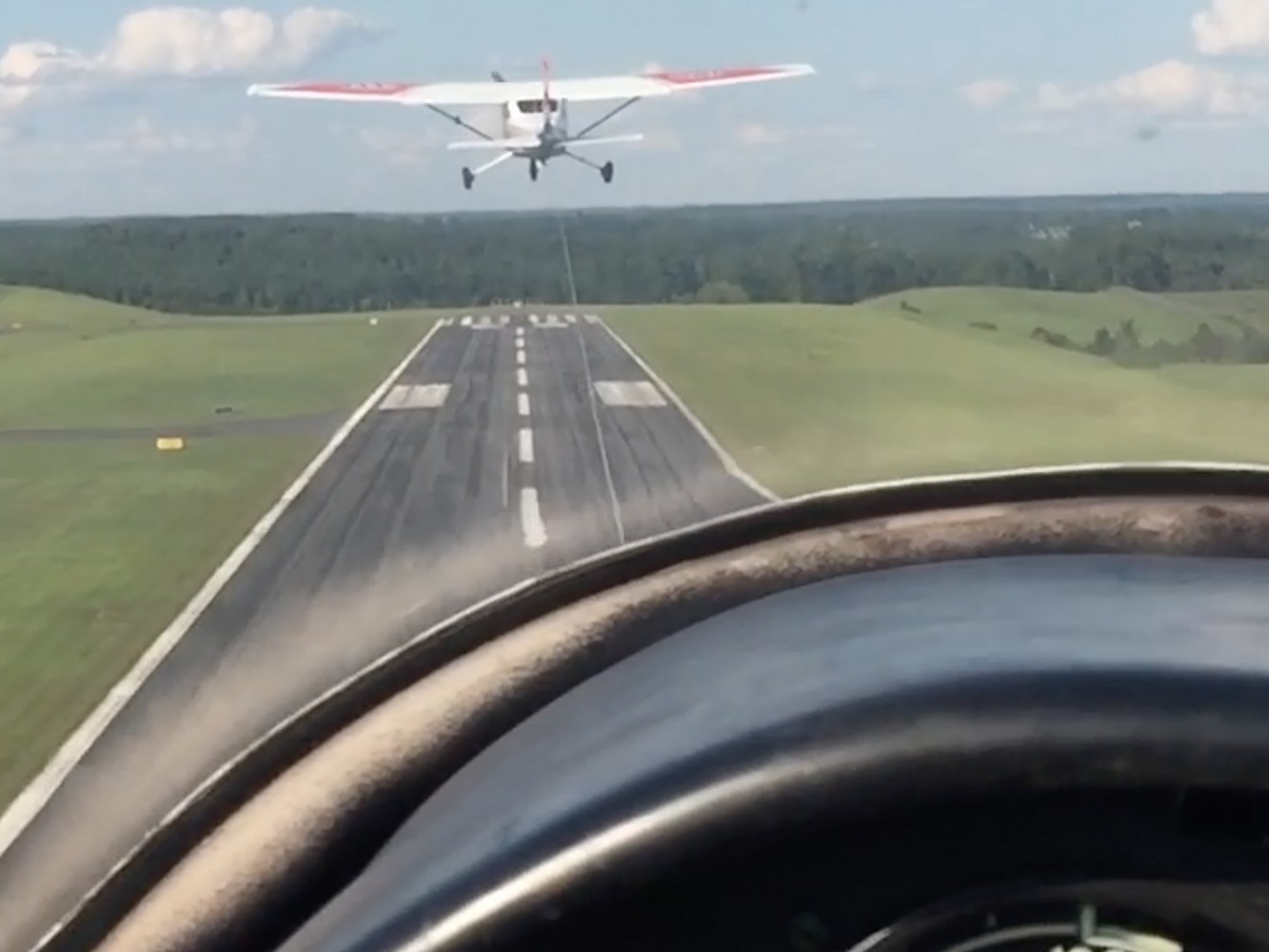1,000 and Counting: N. Carolina Cadet Receives Landmark Glider Flight
Program's National Director: 'It's Just Pure Flying'
Jennifer Gerhardt
Contributing Writer
Have you ever wondered what it would be like to soar through the air like a bird, floating quietly and peacefully through the sky? One lucky North Carolina Wing cadet won the chance to do just that through Civil Air Patrol’s glider program.
Cadet Airman 1st Class Sarah Haynes of the Iredell Composite Squadron was the chosen passenger on the 1,000th  flight for the North Carolina Wing’s glider program“I chose Cadet Haynes because it was her first glider flight, as well as the first glider flight for the squadron,” said Capt. David Stange, the North Carolina Wing glider program coordinator. “She has demonstrated a great attitude and passion for aviation.”
flight for the North Carolina Wing’s glider program“I chose Cadet Haynes because it was her first glider flight, as well as the first glider flight for the squadron,” said Capt. David Stange, the North Carolina Wing glider program coordinator. “She has demonstrated a great attitude and passion for aviation.”
CAP uses gliders not only to introduce cadets to flight but also as a building block for developing a solid base of skills and knowledge needed to move on to airplanes. For example, the glider and pilot are reliant on atmospheric conditions like thermals, ridge lift and wave lift for sustained flight. Knowing this, the pilot becomes very adept at energy management and situational awareness.
“The glider makes the best platform to introduce our cadets, or anyone else for that matter, to flight since it is a much simpler system to operate,” said Col. John Buschmann, national glider program manager.
“Glider flight is focused on stick-and-rudder skills, the basic building block of pilot competence,” he said. “There is not a distraction by engine noise or controls and instruments in a glider. It’s just pure flying.”
Flight training is conducted around the country during the summer at several glider flight academies as part of the CAP cadet program’s National Cadet Special Activities. Glider flight training for cadets and cadet orientation flights can also be conducted at the local level at wings with gliders assigned.
For Haynes, the glider flight took place at Triangle North Executive Airport in Raleigh.
“I was very excited and looking forward to my first glider flight,” said Haynes, whose brother introduced her to CAP this past spring. “The pilot asked if I wanted to have some fun. I gave an enthusiastic ‘yes.’ ”
With 45 operational gliders, CAP owns and operates the largest fleet of gliders in the U.S. Gliders, however, are assigned to only about half of the 52 wings. This makes the summer academies so important and gives more cadets an opportunity to experience glider flight.
“Glider orientation flights make a big impression or our cadets,” Buschmann said. “They will usually get out of the glider with a great big smile on their face.”
The glider program definitely made an impression on the Haynes family.
“As far as Sarah’s brother, Richard, was concerned, he was sortie 999 and Sarah was 1,000,” said Sarah’s dad, Christian Haynes. “On the way home, both of them made commitments to go to one of the glider academies next summer. However, I knew what they would ultimately decide long before we arrived that morning.”



